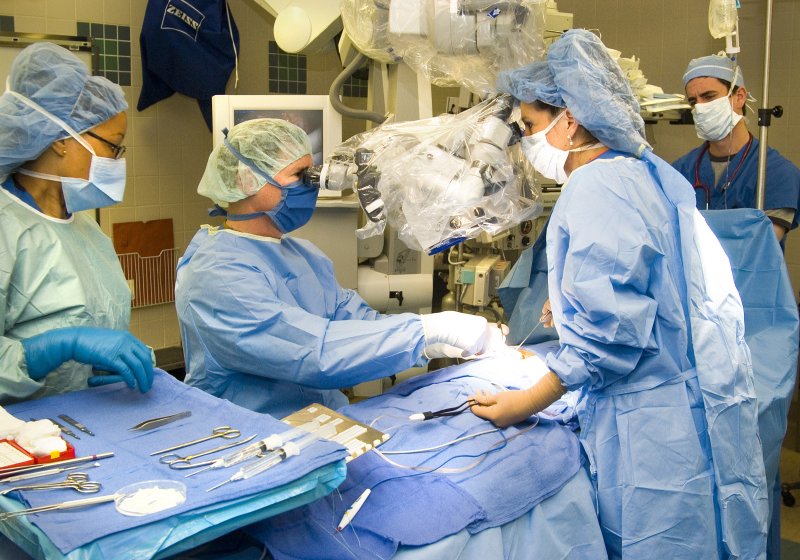Men with feminine character traits get slower treatment in hospital ER. (UPI Photo/HO/Children's Healthcare of Atlanta). |
License Photo
MONTREAL, March 19 (UPI) -- Middle-age men received faster care in a hospital for a heart attack or angina than middle-age women, researchers in Canada said.
Dr. Louise Pilote, clinician-researcher at the Research Institute of McGill University Health Centre in Montreal and professor of medicine at McGill University, and colleagues said the study involved 1,123 patients ages 18 to 55 recruited from 24 centers across Canada, one in the United States and one in Switzerland.
Thirty-two percent of study participants were women, median age 50, and 68 percent were men, median age 49. The median age for women was 50 and for men 49 years.
Within 24 hours after admission to hospital, patients completed a survey that asked about gender-related issues such as "traditional" masculine and feminine traits of personality, responsibility for housework, education level and health status before the event.
Men came from higher income brackets, were less likely to have diabetes, high blood pressure and a family history of heart disease. The women had substantially higher levels of anxiety and depression than men.
The study, published in the Canadian Medical Association Journal, found men received faster access to electrocardiograms and fibrinolysis than women, with door-to-ECG and door-to-needle times of 15 and 21 minutes for men and 28 and 36 minutes for women.
"Anxiety was associated with failure to meet the 10-minute benchmark for ECG in women but not in men," Pilote wrote in the study. "Patients with anxiety who presented to the emergency department with non-cardiac chest pain tend to be women, and the prevalence of acute coronary syndrome is lower among young women than among young men. These findings suggest that triage personnel might initially dismiss a cardiac event among young women with anxiety, which would result in a longer door-to-ECG interval."
However, both men and women with feminine character traits were less likely to receive timely care than patients with masculine traits.
"A novel finding of our study was the identification of gender-related determinants of access to care," the study authors wrote. "Men and women who reported higher levels of feminine personality traits, as well as those who reported being the person at home mainly responsible for housework, were ... less likely to undergo invasive procedures."















